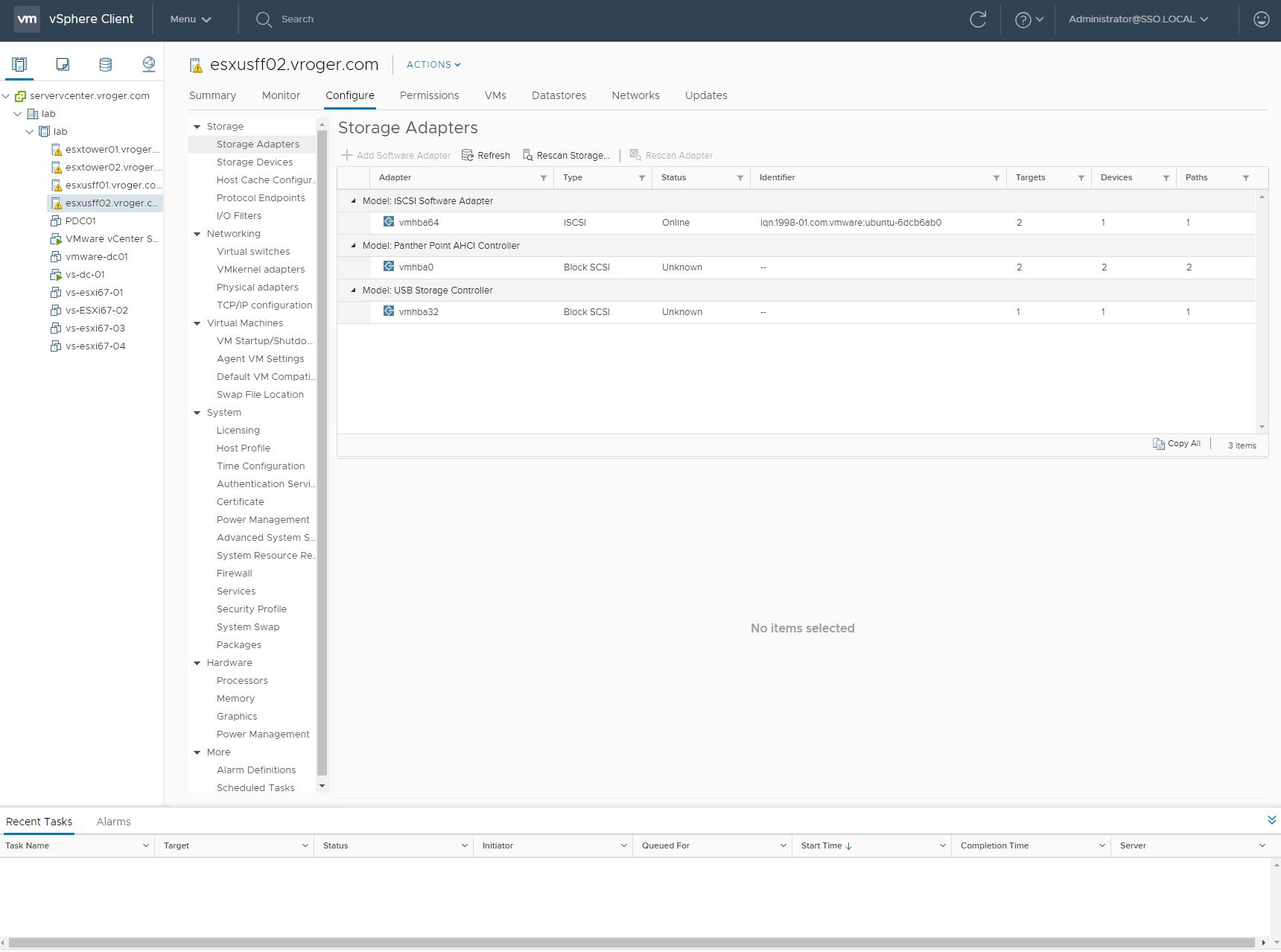HP is bringing software defined storage to the masses by bundling the StoreVirtual VSA (virtual storage appliance) with the purchase of new ProLiant hardware. The new offer, announced November 12, is available with 10 models of ProLiant and includes a 1TB entitlement for StoreVirtual VSA. That license can be combined on up to 3 nodes for a total capacity of 3TB of total storage in a free software SAN. And although the license is limited to 3 nodes within the StoreVirtual cluster, the storage can be made accessible to any connected servers in the site.
The new offer is attractive for small office or enterprise remote office deployments where typically only a few servers are deployed. HP is targeting the SMB market with the new offer in an attempt to gain market for the StoreVirtual software defined storage line of products according to Dale Degen, category manager for Software Defined Storage at HP.
“I’m pretty excited because this will expand the scope of who has been exposed to this concept,” Degen said during a call this week.
Chock full of features
The free 1TB licenses are no gimmick. The licenses include the full package of StoreVirtual capabilities, excluding Adaptive Optimization. Those capabilities include large enterprise features like asynchronous replication, snapshots, thin provisioning, network RAID and storage clustering. The only thing not included with the 1TB license is HP’s Adaptive Optimization feature for sub-LUN tiering and support. Users who want support for the StoreVirtual can upgrade to a retail copy of StoreVirtual, with pricing beginning at $3,000 list for 3 nodes of 4TB each and includes 3 years of support. Although the free licenses are limited to 3 node clusters, customers are free to create multiple clusters and the StoreVirtual Centralized Management Console manages multiple storage clusters easily, which is a great benefit to larger companies who may have StoreVirtual storage at both primary and remote sites.
The free licenses are easy to obtain, according to Degen. Any of the eligable ProLiant servers shipping after November 1 include a sticker with a key that can be used to unlock the license from the HP website. Customers can take their keys and and fulfill the request, download the VSA software package and retrieve the licenses.
From personal experience, the deployment process of the StoreVirtual VSA is very easy. Users can obtain the ‘Zero to VSA’ toolkit, as Degen called it, from the HP website which offers a streamlined deployment process for the VSA. In my lab environment, the manual deployment steps took about 10 minutes – mostly pointing the wizard to your vSphere or Hyper-V environment and then letting it push out the appliance. Deegan also said that the Zero to VSA toolkit includes a CLI environment which could let power users automate the deployment in enterprise environments.
SMB users: what is StoreVirtual and what’s a VSA?
Many SMB users may not have heard of HP StoreVirtual and may be wondering what it is all about. At a high level, StoreVirtual takes the local storage inside of a server and uses software to pool the storage and offering it up as an iSCSI based SAN. Multiple servers deployed with StoreVirtual also pool together and replicate among each other to create a RAIN (redundant array of independent nodes) configuration. Like RAID, RAIN is the concept of stripes or mirrors for the data between nodes. StoreVirtual is a software-only solution, although HP also sells hardware solutions created around StoreVirtual software. Originally created by Lefthand Networks, the StoreVirtual continues to run the Lefthand OS on bare metal installs and inside of the VSA or virtual storage appliance. Lefthand OS, formerly known as SAN/iQ, is currently at verison 11 and is a very mature product in a market full of new solutions.
StoreVirtual’s feature set is also on par with much larger enterprise storage platforms, but by utilizing existing storage or servers, it offers a much lower price point for many customers looking for SAN storage. Virtualization and particuarlly vSphere have pushed many SMB users to look towards SAN solutions to accommodate virtual workloads and provide highly available storage.
The VSA (virtual storage appliance) concept is an outgrowth of the Lefthand OS within a virtual machine. Like installing Lefthand OS on bare metal hardware, the VSA uses onboard, local storage under the ESXi or Hyper-V hypervisor and creates pools on this storage so that it can be served up for any number of uses on the network, but many times that use case is to store virtual machines. While the VSA can present storage back to its local virtual host machines, it can also be used by any other server or virtual host with connectivity to its SAN network.
Sounds great, how to I get it?
For all the latest information about the offer, about StoreVirtual VSA and about how to take advantage, go to the HP website at http://hp.com/go/FreeVSA.

